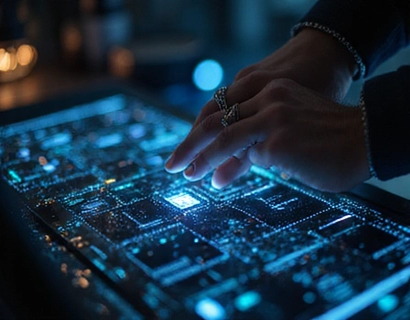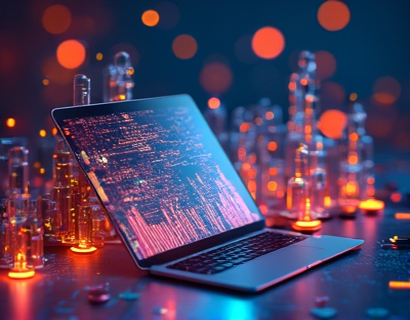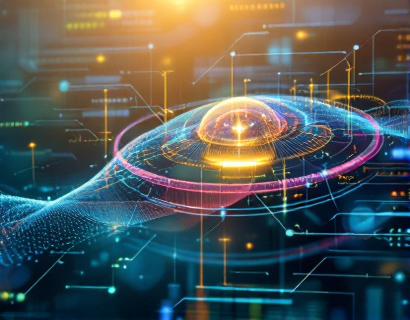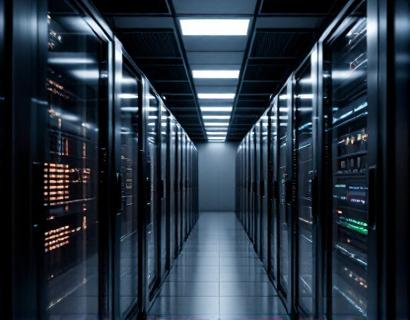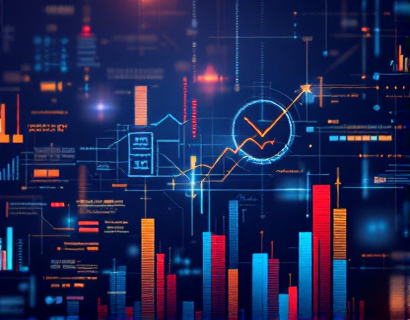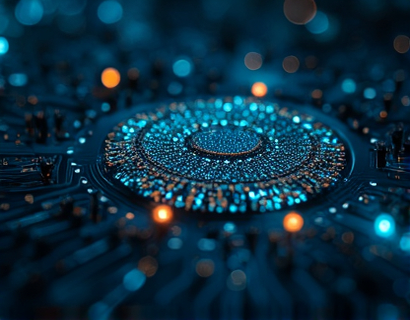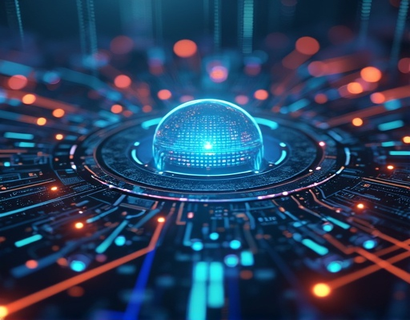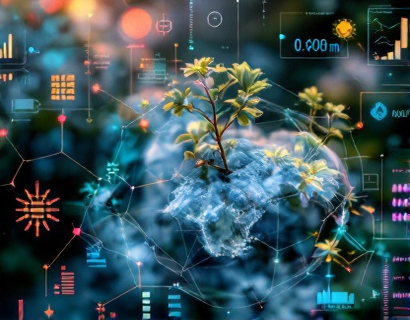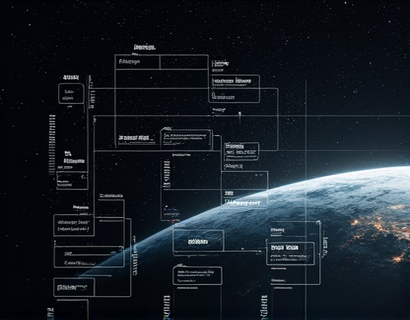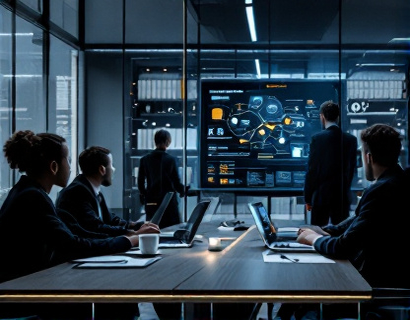AI and Crypto: Pioneering Seamless Digital Solutions for Enhanced User Experiences
The intersection of artificial intelligence and cryptocurrency is giving rise to a new era of digital innovation, where the boundaries of technology are being redefined. This fusion is not just about combining two advanced fields but about creating a synergy that enhances user experiences, streamlines processes, and opens up new possibilities in the realm of connected technologies. As we explore this transformative landscape, it becomes evident that the integration of AI and crypto is paving the way for more intuitive, secure, and efficient digital solutions.
The advent of blockchain technology has already revolutionized the way we think about digital transactions and data management. By providing a decentralized, transparent, and immutable ledger, blockchain has laid the foundation for a trustless economy. However, the complexity and sometimes cumbersome nature of blockchain applications have limited their widespread adoption. This is where artificial intelligence steps in, offering sophisticated tools to simplify, enhance, and secure these applications.
Enhancing Security with AI
One of the primary concerns in the crypto space is security. The decentralized nature of blockchain, while a strength, also introduces vulnerabilities that can be exploited by malicious actors. AI plays a crucial role in fortifying these systems by detecting and mitigating threats in real-time. Machine learning algorithms can analyze vast amounts of data to identify patterns indicative of fraudulent activities, such as unusual transaction volumes or suspicious account behaviors. These algorithms can automatically trigger alerts and implement security measures, ensuring that potential threats are neutralized before they cause significant damage.
Moreover, AI can enhance the security of private keys and wallet management. Traditional methods of storing private keys, such as hardware wallets, can be compromised through various means. AI-driven solutions can offer more robust security protocols by using biometric data, behavioral analysis, and dynamic key generation. For instance, AI can monitor user behavior and detect anomalies that might indicate a compromised device or account, thereby providing an additional layer of security.
Streamlining User Interactions
The user experience in crypto applications is often hampered by complex interfaces and cumbersome processes. AI can significantly improve this by creating more intuitive and user-friendly interfaces. Natural Language Processing (NLP) enables users to interact with crypto applications using natural language commands, making the process more accessible to those who may not be tech-savvy. Chatbots powered by AI can provide instant customer support, answering queries, and guiding users through transactions and settings with minimal friction.
Personalization is another area where AI shines. By analyzing user behavior and preferences, AI can tailor the user interface and experience to individual needs. This could include recommending specific coins or tokens based on a user's trading history, suggesting optimal times for transactions based on market trends, or customizing dashboard layouts to highlight the most relevant information. Such personalization not only enhances user satisfaction but also increases engagement and retention.
Optimizing Trading and Investment Decisions
For traders and investors, the ability to make informed decisions is paramount. AI can provide valuable insights by analyzing vast datasets to identify trends, predict market movements, and assess risk. Machine learning models can process historical data, news feeds, and social media sentiment to generate predictive analytics that can inform trading strategies. This data-driven approach can help users make more accurate and timely decisions, potentially leading to better returns.
Robust AI-powered trading platforms can automate trading processes, executing trades based on predefined algorithms and real-time market data. These platforms can operate 24/7, eliminating the need for constant human monitoring and reducing the risk of emotional decision-making. Additionally, AI can help manage portfolios by rebalancing assets, optimizing asset allocation, and providing real-time alerts for significant market changes.
Enhancing Smart Contract Functionality
Smart contracts are a cornerstone of blockchain technology, automating and enforcing contractual obligations without the need for intermediaries. However, the complexity of writing and deploying smart contracts can be a barrier for many developers. AI can simplify this process by providing tools that generate smart contract code based on user-defined parameters, reducing the risk of errors and vulnerabilities. These tools can also audit existing smart contracts, identifying potential security flaws and suggesting improvements.
Moreover, AI can enhance the execution and management of smart contracts. By integrating AI-driven oracles, smart contracts can access real-world data, such as weather conditions, stock prices, or geopolitical events, to trigger actions more accurately. This integration ensures that smart contracts are not only automated but also context-aware, making them more reliable and efficient.
Fostering Decentralized Applications (DApps)
Decentralized applications (DApps) are at the forefront of the crypto revolution, offering decentralized alternatives to traditional web applications. AI can play a pivotal role in the development and operation of DApps by providing advanced functionalities and improving user interactions. For instance, AI can enhance the user interface of DApps, making them more intuitive and visually appealing. It can also optimize the performance of DApps by predicting and managing load, ensuring smooth user experiences even during peak usage times.
AI-driven analytics can provide valuable insights into user behavior within DApps, helping developers refine and enhance their offerings. By analyzing usage patterns, AI can identify features that are most utilized and those that need improvement, guiding the iterative development process. Additionally, AI can facilitate the creation of decentralized governance models, where community members can participate in decision-making through AI-enhanced voting systems that ensure fairness and transparency.
Challenges and Considerations
While the integration of AI and crypto offers numerous benefits, it also presents challenges that must be addressed. One of the primary concerns is the regulatory landscape. The crypto space is still navigating a complex web of regulations, and the introduction of AI adds another layer of complexity. Ensuring compliance with existing laws while advocating for favorable regulations is crucial for the sustainable growth of AI-enhanced crypto solutions.
Another challenge is the technical integration itself. Combining AI with blockchain requires robust infrastructure and expertise. Developers need to ensure that AI algorithms are efficiently deployed on the blockchain or in conjunction with it, without compromising the decentralized and secure nature of the system. This involves addressing issues such as scalability, latency, and energy consumption.
Future Prospects
The future of AI and crypto is bright, with numerous opportunities for innovation and growth. As AI technologies continue to advance, we can expect even more sophisticated applications in the crypto space. For instance, the integration of AI with quantum computing could lead to breakthroughs in cryptography, making blockchain systems even more secure. Additionally, the rise of Web 3.0, a decentralized internet powered by blockchain and AI, promises a more user-centric and secure digital environment.
The convergence of AI and crypto is not just about technological advancement; it's about creating a more inclusive and accessible digital world. By reducing barriers to entry and enhancing user experiences, these technologies can empower individuals and businesses alike, fostering a more connected and prosperous global community.
In conclusion, the synergy between AI and crypto is redefining the digital landscape, offering enhanced security, streamlined interactions, and optimized services. As we continue to explore and harness this synergy, the potential for transformative change is immense, paving the way for a future where technology serves humanity more effectively than ever before.












